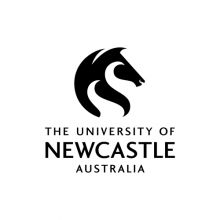
The worlds of heavy metal and higher education collided with the force of a power chord when Kerrang! reported on the University of Newcastle’s PhD in the “social geography of heavy metal culture” on 26 June. The magazine reported that scholarships of A$27,596 (£15,274) were being offered by the Australian institution to “study social geographies across a series of cultures”, including “vegan geographies, unschooling and the possibilities of childhood, and of course, heavy metal geographies”. Metal fan Simon Springer, director of human geography at Newcastle, said candidly: “I don’t think the university hopes to uncover anything from this, and probably won’t even particularly care what the students I will eventually work with are doing, as long as they are doing something.” It feels like the sort of material that various media outlets and parliamentarians with an instrumentalist view of higher education funding could riff on.
The putative fifth series of Blackadder will be set in the modern era, with Edmund Blackadder working as a university lecturer, The Sun reported on 30 June. The newspaper said that earlier discussions had focused on a one-off return for the BBC show, which ran from 1983 to 1989 and was written by Richard Curtis and Ben Elton. But a full series is now under consideration, it suggested. Mr Curtis, whose contribution to Blackadder must be considered as the remarkable high point of a career that otherwise inflicted films such as Love Actually on the public, previously said: “The thing about Blackadder was, it was a young man’s show criticising older people, saying how stupid those in authority were. So I did once think, ‘If we ever did anything again, it should be Blackadder as a teacher in a university, about how much we hate young people’.” The best-case scenario would be for a satire of, rather than endorsement of, tiresome views about today’s “snowflake students” – and for Mr Elton to write most of it.
Cardiff Metropolitan University made headlines after it became the first British university to field a men’s football team in a European competition, as its side lost 1-0 to Luxembourg’s Progrès Niederkorn in the first leg of a Europa League first round qualifying tie on 27 June. Cardiff Met has experienced a meteoric rise under manager Christian Edwards – a former Nottingham Forest player with a PhD and a lecturer’s post in sports coaching at the university. If the team can overturn the deficit in the second leg, they will continue in the Europa League, a competition that is a distant second best to the Champions League and is often derided by critics. Hopes of a win will be high: Cardiff Met entered England’s teaching excellence framework, so knows a thing or two about making progress in meaningless competitions.
In this week’s least surprising research finding category, poor diet has been linked with unhealthy weight gain for students in their first year at university. Male students in a Canadian study that looked at first-year eating habits put on an extra 3.8kg on average after doughnuts and fried chicken took their toll, vegetables dropped off the menu and alcohol intake increased. Female students fared better in the study, published in Plos One on 3 July, but still gained an average of 1.8kg over the year. The authors of the research, undertaken at Brock University in Canada, say the results showed that students “undergo unfavourable and differential changes to their dietary intakes during the transition to university life”, a conclusion that could possibly have been reached by watching an episode of British 1980s cult TV sitcom The Young Ones.
Ruddington Village Museum is not somewhere that normally trips off the tongue when considering top sightseeing attractions in the UK. According to BBC News, its collection illustrating retail life in the small village outside Nottingham in the late Victorian and early Edwardian era has seen only 75,000 visitors in the past 50 years. But it apparently become an internet sensation after Nottingham Trent University student Feixue Huangdu livestreamed a video tour. The video, sometimes featuring eerie close-ups of dolls in the collection, racked up more than 400,000 views, according to the BBC. It is the latest in a string of live heritage tours of UK sites broadcast by the museum and heritage development postgraduate, who said that Chinese viewers are “really interested in learning about British culture and heritage”.
Register to continue
Why register?
- Registration is free and only takes a moment
- Once registered, you can read 3 articles a month
- Sign up for our newsletter
Subscribe
Or subscribe for unlimited access to:
- Unlimited access to news, views, insights & reviews
- Digital editions
- Digital access to THE’s university and college rankings analysis
Already registered or a current subscriber? Login





